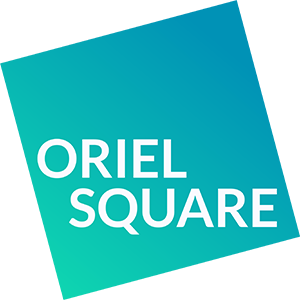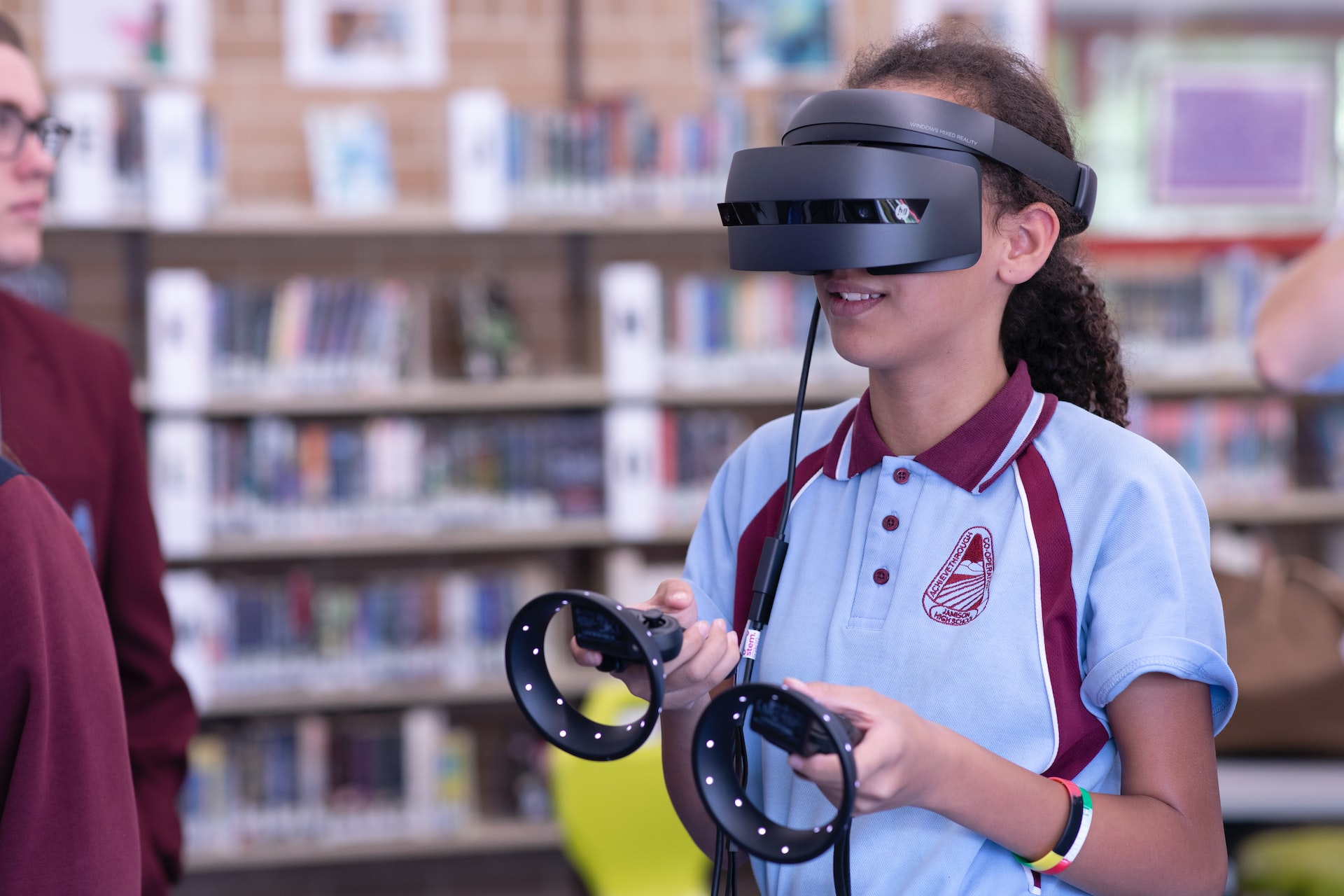With expert insight from our edtech Classroom Expert Greg Hughes
The metaverse and education
Education needs to integrate these technical strands for learners now, to prepare them for what will be the digital landscape of work.
Heralded as the next paradigm shift in technology, the metaverse is an online arena powered by virtual reality (VR) which enables people to meaningfully interact with each other, freed from the limitations of geography. Facebook’s rebrand to Meta in 2021 focused more attention on this promised technical future. While we recognise that there is a big disconnect between the reality of school funding today and this technical ideal, it’s an important issue for everyone involved in the future of education.
At the ISTELive (International Society for Technology in Education) conference in the USA in Summer 2022, a dominant theme that carried through multiple talks was the future of technology, the metaverse and web 3.0. Most notable was the connection between these and the future of work – the idea that education needs to integrate these technical strands for learners now, to prepare them for what will be (in the not-so-distant future) the digital landscape of work. These are shaping the workforce, so education needs to prepare learners for them.
The metaverse could provide new depths of experience, enabling complex concepts to be explored and demonstrated.
In June 2022 at a Brookings-Yidan Prize event series on the future of education in the 21st century, five experts in the field discussed some of the issues. The panel included Rebecca Kantar, education lead at Roblox, which half of US children use, and Kathy Hirsch Pasek, lead academic on the paper A whole new world: Education meets the metaverse. One of the clear emerging themes was a hope that the metaverse will be a safe, civil space for all, where people can co-experience life together.
The panellists noted that education systems change at a much slower pace than technology. There is now a large body of evidence on how children learn, and yet education systems often focus on content, not ways of learning. The metaverse could provide new depths of experience, enabling complex concepts to be explored and demonstrated through a new currency of learning. Assessments typically measure lower-level skills of recall and understanding, but curricula standards demand higher rungs of taxonomy like evaluating and creating, and the metaverse offers opportunities for developing these skills – for example, in robotics.
The teacher acts as a “guide on the side, not a sage on the stage”.
Kathy Hirsch Pasek painted a vivid picture of a class travelling on an interactive timeline back to ancient Greece to experience the environment in VR, before travelling back to the here and now to discuss how we know about the ancient world. The children can then use their avatars to act as archaeologists and piece together the secrets of this ancient civilization. What is crucial to the vision is that it is child-led, with the teacher a “guide on the side, not a sage on the stage”.
The journey to the metaverse
The metaverse provides an opportunity to create an inclusive, diverse environment from the ground up.
The panel discussed issues around diversity, equity and inclusion. There isn’t enough authentic representation in children’s media, and we know social media can have a highly negative impact on the self esteem of young people. The metaverse provides an opportunity to create an inclusive, diverse environment from the ground up, and not just consulting with different groups, but co-creating the world with them.
The vision of connecting children across the globe to foster empathy and cooperation is a powerful one, but as always there is an ongoing concern about equitable access to the technology. Developers can go some way to democratise access but governments also need to support participation.
Human-centred design in the classroom can bring joy and hope to education.
When horizon-scanning for possible issues in the journey to the metaverse, panellists stressed the need to learn from the mistakes of the past and approach this problem with humility. There is an opportunity to develop for the good of humanity, but not if profit is put first.
Educationalists at ISTELive echoed the sentiments of the panel, emphasising that the future of education is still human! Human-centred design in the classroom can bring joy and hope to education, and educational design can be integrated with technical design to have greater impact. The vision is that technology will supplement and enhance pedagogy, and will improve the inclusivity of education, offering a global perspective that is also localised to enable students to explore and be included.
We asked our Classroom Expert Greg Hughes for his expert view on what the metaverse could mean closer to home in UK schools. Greg is Trust Director and ICT and Trust Leader in Digital Strategy at The de Ferrers Academy in Staffordshire and holder of many edtech accolades including Apple Distinguished Educator.
The metaverse has the potential to help students both engage in and relate to science and society, especially in areas that are traditionally hard to visualise in a 2D textbook.
How could the metaverse transform learning in your schools and trust?
Several years ago, as part of an Erasmus+ project called Girls into Global STEM (GiGS), we had a tour of the University of Hull VR lab, where they were simulating conditions on offshore wind turbines to train engineers and workers in how to repair them in hostile conditions. The benefits were immediately apparent.
The metaverse has the potential to help students both engage in and relate to science and society, especially in areas that are traditionally hard to visualise in a 2D textbook – context is key in helping students access science, so using the Metaverse as a tool to visualise it could be amazing.
Field trips to other planets, touring inside a nuclear power station, viewing molecules from the inside out, dinosaur safari trips – all become possible.
Field trips to other planets, touring inside a nuclear power station, viewing molecules from the inside out, dinosaur safari trips – all become possible and provide a great springboard to weave in the scientific theories and key knowledge. Students mixing with their peers and real scientists and explorers from across the planet to take part in global experiments and discuss their findings brings a different emphasis to the importance of practical work.
What are the barriers to the UK education system embracing the metaverse, and how could these be removed?
Regardless of the potential benefits of the metaverse, there are three main barriers I foresee in UK schools that will slow or prevent its widespread adoption:
- Cost will be the biggest barrier – whilst an increasing number of schools have a VR room or a set of VR headsets, they are still in the minority. Combine this with the current financial pressure building up in UK schools due to rising energy bills and staffing costs and it makes the full immersive metaverse experience unlikely in the short to medium term.
- Equality of access – any scenarios in which the metaverse becomes a blended workspace straddling both home and school requires students to all have equality of access to suitable equipment – we learned during the COVID pandemic that many schools struggled with even basic ICT access at home. Providing all students with a 1:1 device is a big help and provides a better experience than a smartphone.
- Acceptance – The UK, particularly England, has a scepticism about learning technologies and ICT across the curriculum in schools and the side-lining of digital skills and online learning in the DFE strategies really does not help. As more research studies appear to highlight the benefits of VR tools and engaging virtual spaces, as we have seen in energy industries, health services and military uses, I think more educators will be open to the idea.
I would love to see the metaverse become the space that allows people to experience more – a digital glue that helps bind people together.
What are your hopes for the metaverse, and what are your fears?
I have two major worries about the metaverse, both of which we have seen already with the spread of social media over the last 10-15 years.
The first is the use or misuse of student data – we’ve already seen that some companies have a low regard for how they use and sell it, so it is vital to ensure that metaverse data in education is carefully handled and not exploited by companies involved.
The other is ensuring that social interaction within the metaverse stays a safe, positive experience for staff and students, without some of the awful situations and consequences we currently have happening in social media, especially with teenagers.
As a long time fan of the Manga/Anime series Ghost in The Shell, I would love to see the metaverse become the dynamic, creative, virtual space that allows people to experience situations and interactions that they cannot currently – a digital glue that helps bind people together.
More reading:
David Kleeman’s article imagines a day in the life of a typical young person once the metaverse is here.

